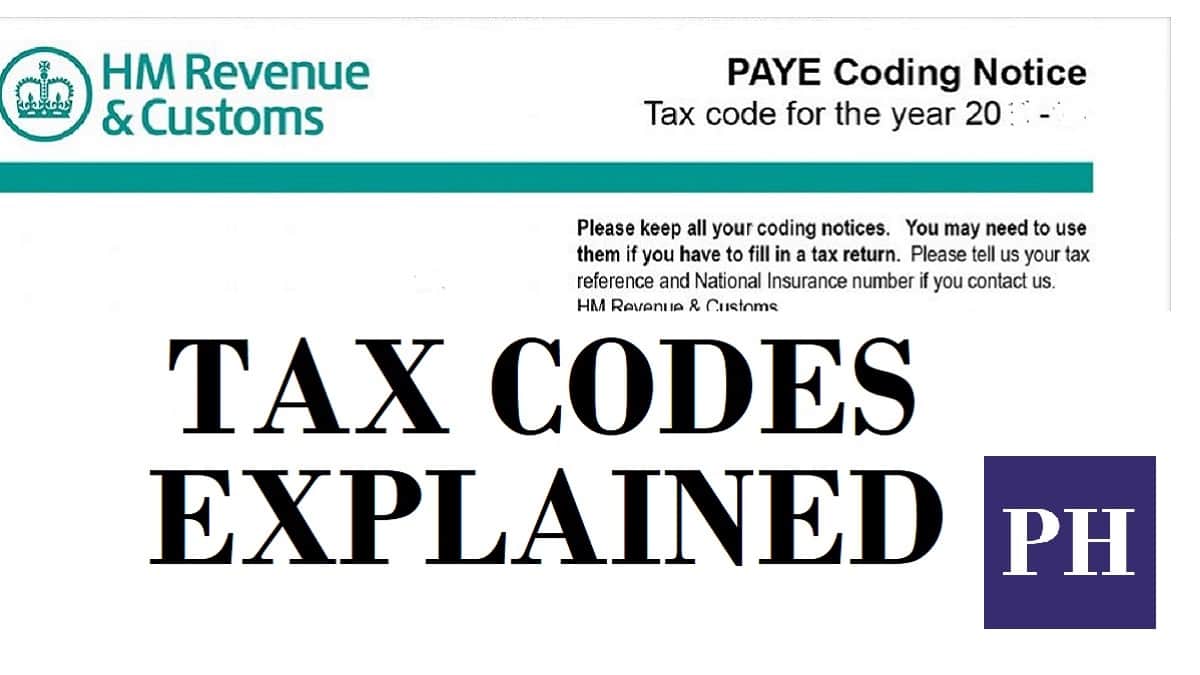Tax codes are one of those aspects of personal finance that often seem shrouded in mystery. You receive yours on your payslip, and it’s easy to overlook or misunderstand its significance. However, understanding your HMRC tax code is crucial, as it directly impacts how much tax you pay and your take-home pay. In this comprehensive guide, we’ll delve deep into the world of HMRC tax codes, unraveling their complexities, and shedding light on what they mean for you.
What Are HMRC Tax Codes?
HMRC tax codes are alphanumeric codes used by your employer or pension provider to calculate how much Income Tax should be deducted from your pay or pension. They consist of numbers and letters, with each element carrying a specific meaning. For example, the standard tax code for the 2021/22 tax year is 1250L, where ‘1250’ represents the amount of income you can earn tax-free, and ‘L’ signifies that you are entitled to the standard tax-free Personal Allowance.
Types of HMRC Tax Codes
There are several types of HMRC tax codes, each indicating different circumstances or conditions that affect your tax calculations. Emergency tax codes, such as BR, D0, and D1, are temporary codes used when your employer doesn’t have enough information to assign a correct code. Non-cumulative tax codes, like NT, are used for individuals whose income is not subject to cumulative tax calculations. Scottish and Welsh tax codes are used for residents of Scotland and Wales, respectively, to reflect the different tax rates and bands applicable in these regions.
Deciphering HMRC Tax Codes
Deciphering your HMRC tax code can seem daunting at first, but it’s actually quite straightforward once you understand the components. The numbers in your tax code indicate your tax-free Personal Allowance, which is the amount of income you can earn before paying tax. For example, if your tax code is 1250L, it means you can earn £12,500 tax-free in a tax year. The letters in your tax code provide additional information, such as adjustments to your Personal Allowance based on your circumstances.
Factors Influencing HMRC Tax Codes
Several factors can influence your HMRC tax code, including changes in your income, adjustments to your Personal Allowance, and benefits or deductions you receive. For example, if you receive the Marriage Allowance or Blind Person’s Allowance, these will be reflected in your tax code. Changes in your employment status, such as starting a new job or receiving a company car, can also affect your tax code. It’s essential to keep HMRC informed of any changes to ensure your tax code is accurate.
Impact of Tax Codes on Pay and Benefits
Your HMRC tax code directly impacts how much tax you pay and, consequently, your take-home pay. A correct tax code ensures you are paying the right amount of tax based on your circumstances, helping you avoid underpayment or overpayment of tax. Your tax code also affects other aspects of your finances, such as your National Insurance contributions and pension contributions. Understanding your tax code can help you manage your finances more effectively and plan for the future.
How to Find Your HMRC Tax Code
Finding your HMRC tax code is relatively easy, as it is displayed on your payslip and P60 form. You can also view your tax code online through your HMRC online account. If you are unsure about your tax code or think it may be incorrect, you can contact HMRC for clarification. It’s important to keep track of your tax code and notify HMRC of any changes in your circumstances to ensure it remains accurate.
Common Misconceptions About HMRC Tax Codes
There are several common misconceptions about HMRC tax codes that can lead to confusion. One common misconception is that your tax code is set in stone and cannot be changed. In reality, your tax code can change if your circumstances change, such as if you start a new job or receive new benefits. Another misconception is that your tax code determines your tax rate, when in fact it is used to calculate how much tax you should pay based on your income and circumstances.
Tips for Managing Your HMRC Tax Code
Managing your HMRC tax code effectively can help you avoid issues such as underpayment or overpayment of tax. It’s essential to regularly check your tax code to ensure it is accurate and reflects your current circumstances. If you think your tax code is incorrect, you should contact HMRC for clarification. You should also notify HMRC of any changes in your circumstances, such as a change in your income or benefits, to ensure your tax code is up to date. Seeking professional advice can also help you understand your tax code better and manage your finances more effectively.
Conclusion
In conclusion, understanding your HMRC tax code is crucial for managing your finances effectively. Your tax code determines how much tax you pay and directly impacts your take-home pay. By deciphering your tax code and understanding its components, you can ensure you are paying the right amount of tax based on your circumstances. Regularly checking your tax code and keeping HMRC informed of any changes in your circumstances can help you avoid issues such as underpayment or overpayment of tax. Managing your tax code effectively can help you plan for the future and achieve your financial goals.





